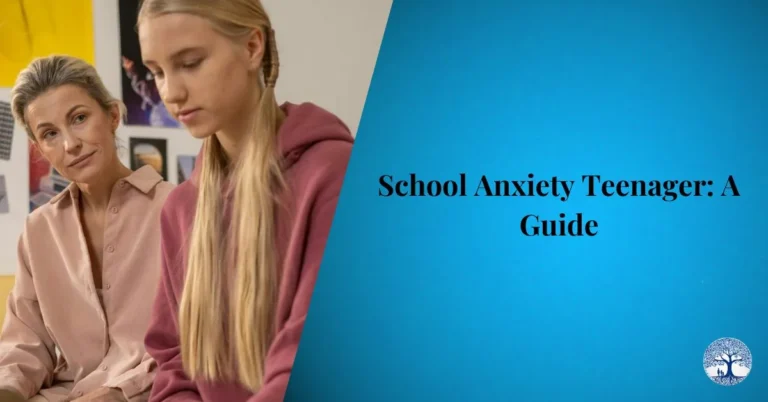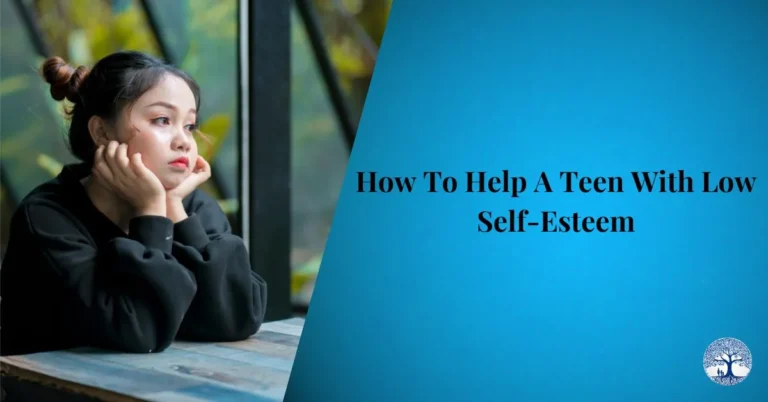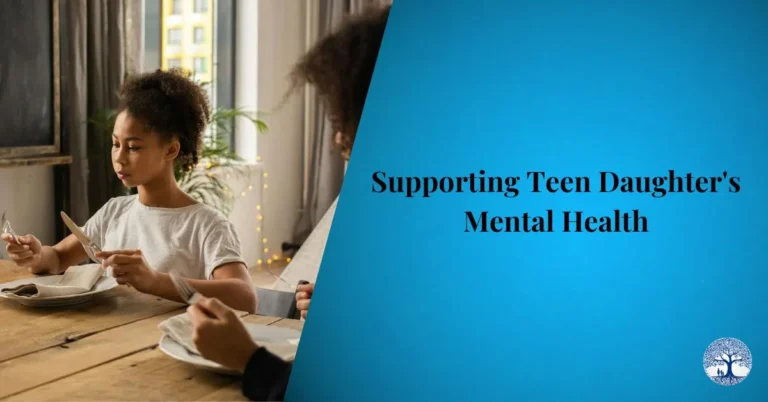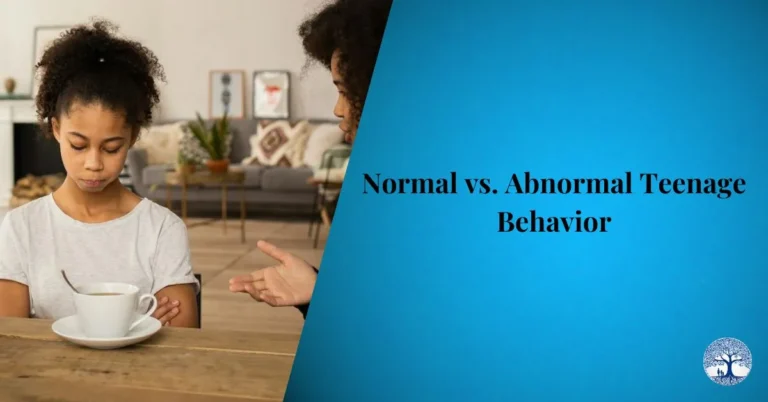Introduction
Emotional communication during the teenage years is crucial for building trust, fostering healthy relationships, and supporting mental well-being. Yet, as many parents know, getting a teenager to open up about their feelings can be challenging. The natural inclination for teens to withdraw or mask their emotions often leaves parents feeling frustrated and concerned. Understanding these challenges is the first step toward bridging the communication gap. By creating a supportive environment, practicing empathetic listening, and using specific strategies that encourage open dialogue, parents can help their teens feel more comfortable sharing their thoughts and feelings, laying the foundation for stronger connections and emotional resilience.
Understanding Teenage Emotions
Navigating the emotional landscape of adolescence can be complex for both teens and their parents. Understanding the underlying factors that contribute to this struggle is essential for fostering better communication.
Why Teens Struggle to Express Their Feelings
During adolescence, the brain undergoes significant changes that impact emotional regulation and expression. Teens often grapple with intense emotions they may not fully understand, making it difficult for them to articulate what they’re feeling. The pressure to fit in, fear of judgment, and the desire for independence can further complicate their ability to open up. These factors, combined with a lack of experience in managing emotions, can create barriers to effective communication.
Role of Adolescent Development in Emotional Expression
Adolescence is marked by a critical stage of development where teens are forming their identity and sense of self. This period of growth is characterized by fluctuating hormones and heightened sensitivity, which can lead to mood swings and emotional volatility. As teens strive to assert their independence, they may withdraw from parental support, viewing emotional expression as a sign of vulnerability. Understanding this developmental stage helps parents approach their teens with patience and empathy, recognizing that emotional expression is still a skill in progress.
Common Signs Your Teen May Be Struggling Emotionally
It’s not always easy to tell when a teenager is struggling emotionally, especially when they’re not forthcoming about their feelings. However, there are key signs that parents can watch for, including sudden changes in behavior, increased irritability, withdrawal from social activities, and a decline in academic performance. Physical symptoms, such as frequent headaches or stomach aches, can also indicate emotional distress. Recognizing these signs early can prompt timely interventions, ensuring that teens receive the support they need to navigate their emotions effectively.

Creating a Safe Environment for Open Communication
Building a safe and trusting environment at home is crucial for encouraging your teenager to share their feelings. When teens feel secure and understood, they are more likely to open up about their emotions, leading to healthier and more meaningful communication.
How to Foster Trust and Safety at Home
Establishing a foundation of trust begins with consistency, respect, and reliability. Teens need to know that they can count on their parents not just to enforce rules, but also to respect their privacy and treat them as individuals. Creating a safe space involves being available when your teen wants to talk, without pushing them to share before they’re ready. A calm, supportive atmosphere, where mistakes are met with understanding rather than punishment, fosters the trust necessary for open communication.
Importance of Non-Judgmental Listening
Listening without judgment is one of the most powerful tools parents can use to encourage their teens to open up. When a teenager feels that they won’t be criticized or dismissed for expressing their feelings, they are more likely to share what’s really on their mind. Non-judgmental listening involves giving your full attention, acknowledging their feelings, and refraining from offering immediate advice or solutions. This approach shows your teen that their emotions are valid and that they have the space to express themselves freely.
Ways to Show Empathy and Understanding
Empathy goes beyond simply hearing your teen’s words; it involves actively putting yourself in their shoes to understand their perspective. Simple acts like validating their emotions, reflecting back what they’ve said, and expressing genuine concern can make a significant difference. Phrases like “I understand why you might feel that way” or “It sounds like you’re really going through something tough” can help your teen feel heard and understood. Empathy not only strengthens your bond but also reassures your teen that they’re not alone in their struggles, encouraging them to continue opening up.
These steps highlight the importance of creating a nurturing environment where teens feel safe to express their emotions. By fostering trust, practicing non-judgmental listening, and showing empathy, parents can build a strong foundation for open and honest communication with their teenagers.
Effective Communication Techniques
Mastering effective communication techniques is key to helping your teenager feel comfortable and willing to share their feelings. By using specific approaches tailored to promote open dialogue, parents can foster deeper connections and more meaningful conversations with their teens.
Asking Open-Ended Questions
One of the most effective ways to engage your teenager in conversation is by asking open-ended questions. Unlike yes-or-no questions, open-ended inquiries encourage teens to elaborate on their thoughts and feelings. Questions like “How was your day?” can be transformed into “What was the best part of your day?” or “How are you feeling about what happened at school today?” These types of questions require more than a one-word answer, prompting your teen to think critically and share more about their experiences.
Active Listening: What It Is and How to Practice It
Active listening is an essential skill in effective communication, especially with teenagers. It involves fully concentrating, understanding, responding, and remembering what is being said. Practicing active listening means setting aside distractions, maintaining eye contact, and nodding or using verbal affirmations to show you’re engaged. By reflecting back what your teen has said—“So, you’re feeling overwhelmed with your schoolwork right now?”—you demonstrate that you’re truly hearing them, which can make them feel valued and understood.
Using ‘I’ Statements to Encourage Dialogue
Using ‘I’ statements is a powerful technique to encourage dialogue without making your teen feel attacked or defensive. Instead of saying, “You never talk to me about your feelings”, which can sound accusatory, try saying, “I feel concerned when we don’t talk about what’s bothering you.” This approach focuses on your own feelings and concerns rather than placing blame, making it easier for your teen to engage in a constructive conversation. ‘I’ statements help create an environment where your teen feels less judged and more open to discussing their emotions.
Avoiding Common Pitfalls: What Not to Say
Certain phrases and approaches can inadvertently shut down communication, making your teen less likely to open up. Avoid dismissive comments like “It’s not that big of a deal”, or “You’re overreacting”, as these can invalidate your teen’s feelings and make them reluctant to share in the future. Similarly, steering clear of sarcastic or critical remarks helps maintain a positive and supportive dialogue. Instead, focus on language that validates their experience and encourages further discussion, such as “I’m here to listen” or “I want to understand what you’re going through.”
By incorporating these communication techniques—asking open-ended questions, practicing active listening, using ‘I’ statements, and avoiding common pitfalls—parents can create a more open and supportive environment where their teenagers feel encouraged to share their thoughts and emotions. These strategies not only enhance communication but also strengthen the parent-teen relationship.

Encouraging Teens to Express Themselves
Helping your teenager find ways to express their emotions is vital for their mental and emotional well-being. By creating opportunities for conversation and encouraging creative and physical outlets, parents can support their teens in navigating their feelings and developing healthy coping mechanisms.
Creating Opportunities for Conversation
Fostering open communication often requires creating intentional opportunities for conversation. Everyday activities, such as family meals, car rides, or evening walks, provide natural settings for your teen to open up. These informal moments can be less intimidating and more conducive to relaxed dialogue. It’s important to be patient and allow the conversation to unfold naturally, without pressuring your teen to talk. By being present and approachable during these times, you signal to your teen that you’re available to listen whenever they’re ready to share.
Using Creative Outlets to Facilitate Emotional Expression
Creative activities can be powerful tools for emotional expression, especially for teens who find it difficult to articulate their feelings verbally. Encourage your teen to explore different creative outlets, such as journaling, drawing, painting, or music. These activities allow them to process their emotions in a non-verbal way, providing a sense of release and self-understanding. For instance, journaling can help teens reflect on their experiences and emotions, while drawing or painting can serve as a visual representation of their inner world. Supporting these creative endeavors can help your teen express themselves more freely and develop a deeper connection with their emotions.
Role of Physical Activity and Hobbies in Emotional Health
Physical activity and hobbies play a crucial role in maintaining emotional health, particularly during the turbulent teenage years. Regular exercise, whether it’s a team sport, yoga, or simply going for a run, can significantly reduce stress and anxiety while boosting mood. Hobbies, such as gardening, cooking, or playing an instrument, offer a constructive way for teens to channel their energy and focus their thoughts. These activities not only provide a healthy distraction from emotional stress but also help teens build self-esteem and resilience. Encouraging your teen to stay active and engage in hobbies they enjoy can be an effective way to support their emotional well-being and give them a positive outlet for their feelings.
By creating opportunities for conversation, promoting creative outlets, and emphasizing the importance of physical activity and hobbies, parents can encourage their teens to express themselves in healthy and constructive ways. These strategies not only aid in emotional expression but also contribute to overall mental well-being, helping teens navigate their emotions with greater confidence and clarity.
When to Seek Professional Help
Knowing when to seek professional help for your teenager is crucial for addressing mental health concerns effectively. Recognizing the signs that indicate a need for therapy, approaching the topic with sensitivity, and finding qualified professionals are key steps in ensuring your teen receives the support they need.
Recognizing When Your Teen May Need Therapy or Counseling
Identifying when your teen might benefit from therapy or counseling can be challenging but essential. Look for persistent signs of emotional distress, such as severe mood swings, ongoing feelings of sadness or hopelessness, changes in sleep or appetite, or a significant decline in academic performance. If your teen is withdrawing from friends and activities they once enjoyed, or if they are experiencing frequent and intense anxiety or anger, these may be indicators that professional help could be beneficial. It’s important to address these signs early to prevent further emotional or psychological issues from developing.
How to Talk to Your Teen About Seeing a Therapist
Approaching the topic of therapy with your teen requires sensitivity and understanding. Start by expressing your concern for their well-being and emphasizing that seeking help is a sign of strength, not weakness. Use open, non-confrontational language to discuss the benefits of therapy and how it can provide them with additional support during challenging times. For example, you might say, “I’ve noticed you’ve been going through a tough time lately, and talking to a counselor might help you work through these feelings.” Reassure your teen that therapy is a safe space where they can talk about their issues confidentially. Offering to accompany them to their first appointment or helping them choose a therapist can also make the process less intimidating.
Resources for Finding a Qualified Mental Health Professional
Finding a qualified mental health professional is a critical step in ensuring your teen receives effective support. Start by consulting with your family doctor or pediatrician, who can provide referrals and recommendations based on their expertise. Additionally, reputable online directories, such as the American Psychological Association (APA) or the National Alliance on Mental Illness (NAMI), offer searchable databases of licensed therapists and counselors. It’s also beneficial to check if the therapist specializes in adolescent mental health and is covered by your insurance plan. Many therapists offer initial consultations, which can help you and your teen determine if they are a good fit before committing to ongoing sessions.
By recognizing the signs that indicate a need for professional help, approaching the topic of therapy with care, and utilizing available resources to find a qualified mental health professional, parents can play a pivotal role in supporting their teenager’s emotional and psychological well-being. These steps ensure that your teen receives the appropriate care and support needed to navigate their challenges effectively.

Building Long-Term Emotional Resilience
Cultivating long-term emotional resilience in teenagers involves equipping them with skills to manage their emotions effectively, maintaining open lines of communication, and fostering supportive relationships. By focusing on these areas, parents can help their teens develop the strength and stability needed to navigate life’s challenges.
Teaching Coping Mechanisms and Emotional Intelligence
Equipping your teenager with coping mechanisms and emotional intelligence is fundamental to building their emotional resilience. Teach them practical strategies to manage stress and anxiety, such as deep breathing exercises, mindfulness practices, and problem-solving techniques. Additionally, help them understand and articulate their emotions through activities that enhance emotional intelligence, like discussing their feelings and recognizing emotional triggers. By developing these skills, teens can better handle stress and navigate emotional ups and downs with greater ease.
Importance of Ongoing Conversations About Feelings
Maintaining an ongoing dialogue about feelings is essential for reinforcing emotional resilience. Regular conversations about emotions help normalize the process of discussing and managing feelings, making it easier for teens to approach these topics when they arise. Encourage your teen to share their thoughts and experiences regularly, even when things are going well, not just when they’re struggling. This continuous communication fosters a supportive environment and reinforces that discussing emotions is a normal and healthy part of life.
Encouraging Peer Support and Healthy Friendships
Supporting your teenager in developing healthy friendships and a strong support network is another key aspect of emotional resilience. Encourage your teen to build relationships with peers who offer positive reinforcement and emotional support. Friendships can provide a valuable outlet for sharing experiences and feelings, offering a sense of belonging and understanding. Additionally, model and discuss the qualities of healthy relationships, such as mutual respect and empathy, to help your teen recognize and cultivate these attributes in their own friendships.
By teaching coping mechanisms and emotional intelligence, engaging in ongoing conversations about feelings, and encouraging supportive peer relationships, parents can help their teens build a foundation of emotional resilience. These efforts contribute to a more balanced and confident approach to handling life’s ups and downs, ensuring that teens are better prepared to face challenges with emotional strength and stability.
Conclusion
In summary, fostering open communication with your teenager involves understanding their emotional landscape, creating a safe environment, and employing effective communication techniques. Key strategies include asking open-ended questions, practicing active listening, and using ‘I’ statements to encourage dialogue. Remember to be patient and persistent, as building a strong connection with your teen takes time and consistent effort. Begin engaging with your teenager today by implementing these strategies, fostering a supportive environment, and encouraging them to express their feelings openly. By doing so, you’ll strengthen your relationship and support your teen’s emotional well-being in meaningful ways.
Check out our blog Teenage Behavior Problems: A Guide, for more such content!
Frequently Asked Questions (FAQs)
1. How can I encourage my teenager to open up about their feelings?
Encouraging a teenager to open up about their feelings involves creating a supportive and non-judgmental environment. Start by showing genuine interest in their daily experiences and emotions through open-ended questions, such as “How did that make you feel?” or “What’s been on your mind lately?” Make sure to practice active listening, validate their feelings, and avoid giving unsolicited advice. Consistent, respectful dialogue helps build trust and makes it easier for your teen to share their thoughts and emotions.
2. What are some signs that my teenager might be struggling emotionally?
Common signs that a teenager might be struggling emotionally include changes in mood or behavior, such as increased irritability, withdrawal from friends and activities, or a decline in academic performance. Physical symptoms like frequent headaches or stomach aches, as well as noticeable changes in sleep patterns or eating habits, can also indicate emotional distress. If you observe these signs, it’s important to approach your teen with empathy and explore their feelings gently.
3. How should I approach the topic of therapy with my teenager?
When discussing therapy with your teenager, approach the conversation with sensitivity and openness. Start by expressing your concern for their well-being and framing therapy as a positive and supportive resource. Use affirming language, such as “I think talking to a counselor could really help you work through some of the things you’ve been dealing with.” Reassure them that seeking help is a sign of strength and that therapy offers a confidential space to discuss their feelings.
4. What are some effective ways to practice active listening with my teenager?
Active listening involves fully focusing on your teenager during conversations and demonstrating that you understand their perspective. To practice active listening, maintain eye contact, nod in acknowledgment, and use verbal affirmations like “I see” or “That sounds tough.” Reflect back what your teen has said to show comprehension, such as “It sounds like you’re feeling overwhelmed with your schoolwork.” Avoid interrupting or jumping to solutions, and instead, offer supportive feedback and empathy.
5. How can I support my teenager in developing healthy coping mechanisms?
Supporting your teenager in developing healthy coping mechanisms involves teaching them practical strategies to manage stress and emotions. Encourage activities such as deep breathing exercises, journaling, or engaging in hobbies that they enjoy. Help them identify and practice these coping skills regularly to build resilience. Additionally, model healthy emotional regulation and coping strategies yourself, as your actions can influence how your teen handles their own emotions.






One Comment